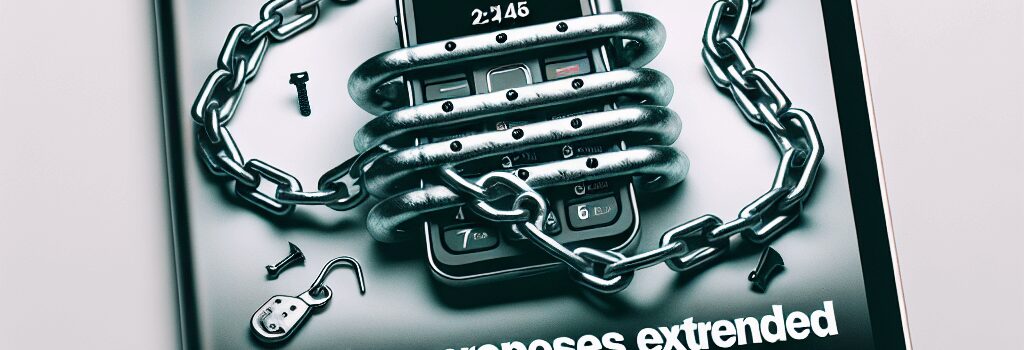Verizon Proposes Extended Phone Locking Periods

Overview of Verizon’s Petition
In May 2025, Verizon filed a formal request with the Federal Communications Commission (FCC) aiming to suspend or eliminate obligations that require it to unlock customer devices within 60 days of activation. These unlocking requirements stem from two separate regulatory actions: open access conditions tied to Verizon’s acquisition of 700 MHz spectrum in 2008, and merger remedies from its 2021 purchase of TracFone. By invoking the FCC’s new “Delete, Delete, Delete” rollback initiative under Chairman Brendan Carr, Verizon argues that the wireless market has evolved and that these legacy rules now distort competition, facilitate cross-border device theft, and harm consumers.
Regulatory Background
2008 700 MHz Spectrum Auction and Open Access
When Verizon spent $9.4 billion acquiring 700 MHz licenses in Auction 73, it accepted open access mandates designed to foster competition and prevent ‘walled gardens.’ Specifically, Verizon agreed to allow device interoperability by requiring a maximum 120-day network lock on smartphones using that band—a provision later reduced to 60 days under a Trump-era partial waiver.
2021 TracFone Merger Conditions
To secure approval for acquiring TracFone’s ~20 million prepaid customers, Verizon committed to a uniform 60-day unlocking window for all devices operating on its network, including those sold under TracFone’s brands like Straight Talk and Total by Verizon. This replaced TracFone’s prior 12-month lock policy.
Verizon’s Petition to Waive Unlocking Rules
In April 2025, Verizon submitted comments to the FCC’s deregulation docket, and in May filed a waiver request. Key arguments include:
- Fraud and Device Trafficking: Verizon cites internal data indicating a 35% uptick in deactivated TracFone devices before subsidy recoupment, attributing this to sophisticated fraud rings using Multi Operator SIM locks (MOSLOCK) and Market Entry Protection (MEP) overrides.
- Market Distortion: The current rule applies only to Verizon, giving competitors like AT&T and T-Mobile the ability to enforce six-month or permanent locks, which Verizon says is now industry standard.
- Obsolete Open Access Concerns: Smartphones and apps today are largely interoperable across networks, rendering the original net neutrality and open access objectives outdated.
Recent FCC Developments
Under former Chairwoman Jessica Rosenworcel, the FCC proposed extending a 60-day unlocking requirement to all carriers. That Move received unanimous commission support for a Notice of Proposed Rulemaking in July 2024, but under Chairman Carr’s “Deregulatory Initiative,” the commission is now identifying rules to eliminate. Verizon hopes the unlocking rule will be among the first rescinded.
Technical Deep Dive: How Phone Locking Works
Modern handsets incorporate network locks at the baseband level, enforced via a lock control word in the UICC (SIM card) and firmware flags. When a device is locked, the Radio Resource Control (RRC) layer rejects unauthorized Mobile Network Codes (MNCs) at boot time. To unlock, carriers issue a Unique Device Unlock Code (UDUC) tied to the International Mobile Equipment Identity (IMEI). Verizon argues expanding the lock period from 60 days to 180 days or longer would align with current Subscriber Identity Module (SIM) security practices and reduce illegal unlocking exploits.
Security and Consumer Impact Analysis
Industry experts are divided. Dr. Sabrina Lee, CTO of Telecom Security Analytics, warns that extended locking windows may inconvenience legitimate users who switch carriers after holiday promotions. Conversely, The National Consumer Rights Alliance argues that frequent lock periods facilitate churn and confuse consumers, noting APIs for over-the-air unlocks can fail 5–10% of the time, leading to support escalations.
Market and Competitive Implications
Locked devices can strengthen carrier lock-in, bolster Average Revenue Per User (ARPU), and protect subsidy recovery on high-end 5G NR handsets supporting both standalone (SA) and non-standalone (NSA) modes. However, MVNO partners reliant on unlocked campuses—such as Google Fi and Visible—contend that prolonged locks undermine their value proposition and could drive regulatory scrutiny under Section 202 antitrust provisions.
Latest News and Congressional Interest
In June 2025, the Senate Commerce Committee held hearings on device portability, with bipartisan bills like the Unlocking Consumer Choice Act reintroduced to mandate unlock within 30 days for all carriers. Meanwhile, Consumer Reports published a technical study demonstrating that delayed unlocks correlate with a 15% increase in unauthorized repair shop visits.
Future Outlook and Conclusion
Verizon’s petition marks a key test of the FCC’s deregulatory posture under Chairman Carr. Should the commission rescind the 60-day rule, Verizon will likely implement a six-month network lock by default, reshaping handset portability dynamics. Stakeholders from competitors to consumer advocates are gearing up to comment during the FCC’s public notice period, setting the stage for a landmark decision in wireless regulation.